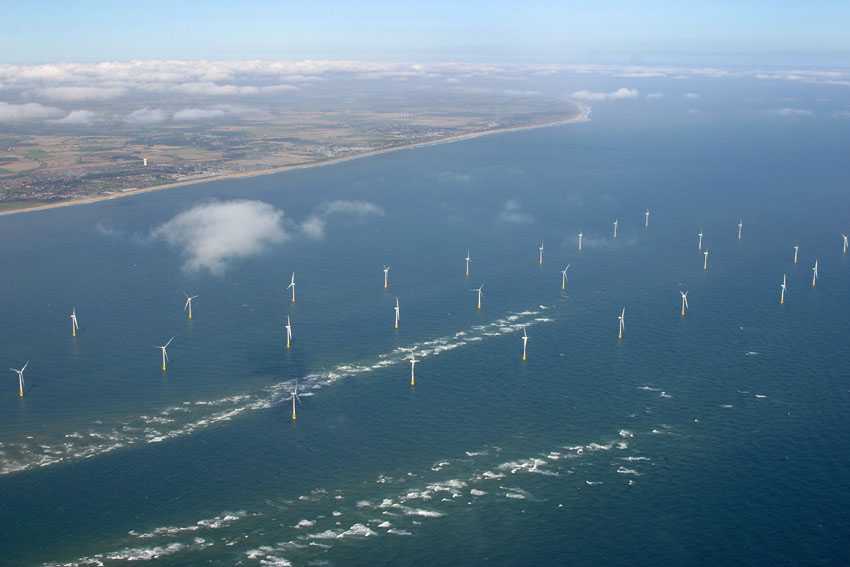Between a Rock-Tenn and a hard place!
May 30th, 2007
Last night, there was a meeting held at Hamline … passive language, I know… I was going to say “sponsored by…” but I can’t really figure that out. So let’s identify all the suspects: At the auditorium entry taking names and emails was Justin Eibenholzl, Southeast Como Improvement Association. Beyond that toward the door was Nina “don’t quote me!” Axelson, Community Organizer for St. Anthony Park Community Council – District 12, telling Neighbors Against the Burner that they could not hold signs outside the door of the auditorium! And running interference out in the hall was Carl Nelson of the Green Institute. Who should stroll in but Steve Taff, U of M Applied Economics, the guy who does things like “Pathways to a reduced-carbon energy system for the Midwest.” District Heating’s Anders Rydaker and Bill Malum, Ken Smith (the site blurs District Heat/Market Street) were there, but what can you say about an entity that brags about a visit from Bush? And of course there were at least two from Rock-Tenn, Steve Haselmann and Jack Greenshields.
I was in on this because a certain Mr. Muller was pulled in by Neighbors Against the Burner to lend his technical expertise (garbage burners have been run out of Delaware and they’ve got strong legislative language to keep them out!). These fights are all the same, and this is Alan’s forte.
For some reason, the neighbors are finding that those they’d expect to support their efforts to stop the burner are taking very odd and painful positions — and that has much to do with the Metropolitan Emissions Reduction Project that’s shutting down Xcel’s St. Paul High Bridge coal plant. There’s a problem here, because Rock-Tenn has painted itself as the poor victim of MERP, which is shutting down the coal High Bridge Plant and there goes Rock-Tenn’s steam, and of course it’s all the enviro’s fault and all the legislators fault that High Bridge is closing, poor Rock-Tenn, they’d better do something to help poor Rock-Tenn. And they forget to mention that Rock-Tenn’s 20 year contract with NSP for that steam is up in July, 2007. Or that the garbage burner that Rock-Tenn dreams of is not only much higher priced than natural gas, but it requires massive public subsidies to not only build the burner, but to build a bigger Newport facility to collect garbage and another C&D facility to deal with that — oh, isn’t this a great idea for our tax dollars? No tax dollars for health care, but tax dollars to make us sick…
A few main things that jump out at me — THIS IS THE OPINION OF OVERLAND:
1) The legislation and the enviros’ MERP deal did NOT create Rock-Tenn’s contractual problem and the demise of its steam supply. End the guilt — don’t take on their problems!
2) Hey, Rock-Tenn, ever hear of laches? They knew the contract was running out and they pay big bucks for legislative and administrative representation. They did not say a peep in the MERP docket and din’t bother to intervene — only send a pissy letter at the very end.
3) To the extent there are any public subsidies, there must be an equal public equity interest!
Here are some of the handouts:
Here’s the Green Institute report, which has a very narrow scope for the $$$ paid:
Here’s the “FrOTH” report promoting a garbage burner:
(where did that go???)
Here’s a Memorandum of Understanding between MPCA and Rock-Tenn:
And here’s an interesting Resolution from Ramsey County supporting a “legislative MERP charge” for Rock-Tenn which for some reason doesn’t mention that in July 2007Â the Rock-Tenn Contract runs out:
I’ve still got some reports to scan in, others to find, and will post those and some more links someday soon…
Someone explain this FPL press release!?!?!
May 29th, 2007

It says in this press release that they’re supporting “Advanced Clean Coal Technology.”
What does that mean? In my experience, that means IGCC – coal gasification. But here, is it just approval of their coal project as proposed, as “clean enough?”
May 25, 2007 05:22 PMÂ Eastern Daylight Time
FPL Agrees with PSC Staff Primary Recommendation to Approve the Need for the Company’s Proposed Advanced Clean Coal Technology Power Plant
JUNO BEACH, Fla.–(BUSINESS WIRE)–Florida Power & Light Company (NYSE:FPL) said today that it is pleased to see that the primary recommendation from the Florida Public Service Commission staff recognizes the utility’s need to build an advanced clean coal technology power plant to meet customers’ future energy demands.
Armando Olivera, president of FPL, said, “For several years, we have received strong encouragement from the Florida Energy Plan, the Florida Legislature and the PSC to diversify our fuel mix. We believe our proposed advanced clean coal technology plant is the only viable generation option for the near term to achieve that objective.â€
In its primary recommendation, the PSC staff agreed with FPL on every key issue regarding its need petition for the FPL Glades Power Park (FGPP).
1. YES: There is a need for the proposed generating units, taking into account the need for electric system reliability and integrity.
2. YES: There is a need for the proposed generating units, taking into account the need for adequate electricity at a reasonable cost.
3. YES: There is a need for the proposed generating units, taking into account the need for fuel diversity and supply reliability.
4. YES: FPL has appropriately evaluated the cost of CO2 emission mitigation costs in its economic analysis.
5. YES: FGPP generating units include the costs for the environmental controls necessary to meet current state and federal environmental requirements, including mercury, NOx, SO2, and particulate emissions.
6. YES: The proposed generating units are the most cost-effective alternative available.
“Our proposed FPL Glades Power Park will provide our customers greater reliability and price stability. Incorporating state-of-the-art pollution control equipment, this advanced clean coal technology plant will be one of the cleanest coal plants in the nation,†Olivera said. “This plant will help keep customers’ bills down and help our country achieve energy independence.â€
The Commission staff’s primary recommendation also acknowledged that energy conservation measures could not mitigate the need for the proposed generating units. In its ten-year plan submitted to the PSC in April, FPL noted that it will meet approximately 26 percent of customers’ projected demand with energy conservation and energy management programs. According to the U.S. Department of Energy, FPL leads the nation in energy conservation, delivering 13 percent of the utility industry’s efforts while serving only 3 percent of the country’s electricity customers.
“Despite our energy management and conservation programs, we need to build power plants to meet future customer growth and energy requirements,†said Olivera.
“We applaud the PSC staff’s primary recommendation and appreciate the staff’s need to provide alternatives. However, in this case, a delay in the project in effect is a veto of the proposed plant,†he said.
“We disagree with the PSC staff’s proposed alternative recommendation to deny our petition, and we believe it would place our customers at too much risk to rely on the possibility that natural gas prices might moderate over time. If we are not able to proceed with our proposed clean coal plant, our only option for the near-term is to build more natural gas-fired plants, increasing our dependency on natural gas to more than 70 percent and subjecting our customers to greater price volatility. Furthermore, the supply of natural gas we get from the Gulf of Mexico is susceptible to interruption from hurricanes such as we experienced with Katrina and Wilma in 2005. Such a situation could present significant reliability issues.â€
The company also said it disagrees with the PSC staff’s second alternative recommendation to defer the final determination of need for the FPL Glades Power Park and instead, accept a lower reserve margin.
“Delaying a decision on the FPL Glades Power Park for a year puts the project into great jeopardy of ever being built,†said Olivera. He said there are numerous factors that could prevent the project from being built if the start is delayed. The cost of materials and services will likely increase substantially, the equipment and service providers selected for the project would no longer be bound by contract and renegotiated contracts are likely to be considerably more expensive, the site selected may not be available and the development of a fuel delivery infrastructure will be more challenging than it is today.
FPL said that it also is concerned with the implication in the PSC staff’s second alternative recommendation that perhaps the advanced clean coal technology plant would not be needed if the reserve margin were lowered from 20 percent to 15 percent. The PSC increased the reserve margin to 20 percent years ago as a response to the California energy crisis and to ensure that Florida would have a reliable and adequate supply of power. “Failing to grant a determination of need for our coal project would result in an inadequate supply of electricity to serve our customers during peak demand periods or when equipment is brought out of service for required maintenance.â€
The company said that if it is faced with this lower reserve margin, customers who have signed up for FPL’s demand side management programs could expect to see an increased occurrence of power interruptions. It is possible that even under normal conditions, there would be a greater likelihood that FPL would not be able to meet demands of our customers. Should there be an unexpected or unplanned plant shutdown, it increases the possibility of customer outages. The PSC staff acknowledged that if customers participating in voluntary load management programs experience increased interruptions, they may opt out of the program. That would result in an even lower reserve margin and greater reliability concerns.
“For several years, the Public Service Commission, the Florida Legislature and the Florida Energy Plan have called for increased fuel diversity within Florida to ensure energy independence and price stability for Floridians,†said Olivera. “Our proposed advanced clean coal technology power project clearly meets that objective, and we are hopeful that the PSC will acknowledge the need for this project when it rules on the matter in June.â€
Florida Power & Light Company is the principal subsidiary of FPL Group, Inc. (NYSE:FPL), nationally known as a high quality, efficient and customer-driven organization focused on energy-related products and services. With annual revenues of nearly $16 billion and a growing presence in 26 states, FPL Group is widely recognized as one of the country’s premier power companies. Florida Power & Light Company serves 4.4 million customer accounts in Florida. FPL Energy, LLC, FPL Group’s competitive energy subsidiary, is a leader in producing electricity from clean and renewable fuels. Additional information is available on the Internet at www.FPL.com, www.FPLGroup.com and www.FPLEnergy.com.
Note to Editors: High-resolution logos and executive head shots are available for download at http://www.fpl.com/news/logos.shtml.
Contacts
Florida Power & Light Company, Juno Beach
Corporate Communications
Pat Davis, 305-552-3888
People tell it like it is!
May 28th, 2007
Thursday, there was a meeting in Nashwauk about the 24″ natural gas pipeline for the steel plant proposed for a site near Nashwauk. Chuck Michaels, SEH, didn’t like that I was a tad-bit late, but hey, it’s a long way from Delaware via Indianapolis! Maybe he’d rather I set him up in a ring to duke it out with Alan over coal! Or Clarence — no crutches allowed!

The Dept. of Commerce had screwed up the prior public meeting notice so they had to have another meeting, but it was pretty strange. There was no court reporter so no transcript, and when I asked if it was being tape recorded, Jeff Haase, Dept. of Commerce, noted that his batteries had run out, but “I’m taking notes.” Uh-huh. We’ll see how that went.
Short version, people are very upset about how this pipeline is being sited, i.e., why is it going near the Mesaba site??? Why do Minneapolis part-time landowners have a con-fab with the project proponents and suddenly the pipeline is OFF their land on right over a local resident’s family’s land??? Why don’t they run it straight down existing easements for a former railroad track along 65 that SEH admitted they didn’t know was there???
Click here for the Commerce site!
Here’s the meeting notice, with the info about how to send in Comments:
From the Notice:
PLEASE NOTE THAT THE PUBLIC COMMENT PERIOD FOR THIS PROJECT HAS BEEN EXTENDED TO JUNE 8, 2007
The public has until 4:30 p.m. on June 8, 2007, to submit written or fax (651-297-7891) comments on this project. Please include the following docket number (PL, E-280/GP-06-1481). Comments should be directed to: Sharon Ferguson, Department of Commerce, 85 7th Place East, Suite 500, St. Paul, MN 55101-2198.  Sharon’s email is “sharon.ferguson@state.mn.us”
Delaware PSC gets it! Wind/gas combo ordered!
May 23rd, 2007

Here’s the PSC Order from yesterday’s meeting hot off the press:
Will someone please explain how it is that Delaware gets it… while here in Minnesota we’re wasting our time wrestling with an utterly ineffective “Global Warming” bill that only serves to increase global warming by exempting every damn project already in the permitting pipeline? GRRRRRRRRRRRRR!!!
Sierra Club – The Struggle for Clean Power
May 21st, 2007
Winning the Battle Against Global Warming and the New Coal Rush
Second Annual Midwest New Energy Future Conference
On Saturday, a group of Midwest Sierra Club chapters held a conference in Indianapolis, and they’d invited me to present on coal gasification (IGCC), which of course was a necessity. It wasso good to have the opportunity to get the word out on our experiences both in Minnesota and Delaware, where it’s slowly but deliciously going down in flames.
Here’s my Powerpoint:
And now I’m going to dig in my files and figure out what else I was supposed to post here! Later…